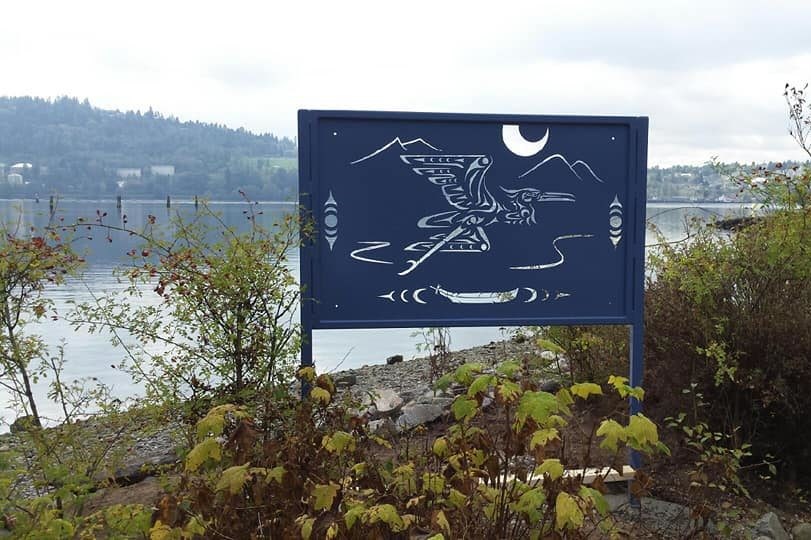When, Whonoak, Dennis Thomas, looks out at the Maplewood Flats he gets emotional.
The North Vancouver conservation area situated within the traditional and unceded territory of the Tsleil-Waututh Nation has been occupied by his people since time immemorial.
It’s the site of an ancestral village with many stories to tell, as well as an ancient fish weir.
“My ancestors clammed, crabbed and ate off of that mudflat for thousands of years,” Thomas shared.
“When I look at that, it's emotional to me, because sometimes I just block out everything else and I imagine my people walking around and collecting their food.”
Thomas, who is a Tsleil-Waututh cultural ambassador and the business development manager of Takaya Tours, said he wanted to share this knowledge with others.
To do this, the seasonal tour company, which usually offers 35-foot traditional canoe tours from Cates Park to experience the culture, tradition, and history of the Tsleil-Waututh Nation, is partnering with the Wild Bird Trust of B.C. (WBT) to create a new cultural tour.
Speaking with immense passion, Thomas said the new tour will be an opportunity for people to learn about the traditional ethnobotany and the local birds of the land and the deep connection Tsleil-Waututh people have to the Maplewood Flats.
“For us to actually be doing the tours on an old village site, while gaining an understanding of the natural life around it and how it sustained our people… it's going to be an impactful experience.”
The company which operates out of Whey-A-Wichen (Cates Park) and Belcarra Regional Park has never done a tour on the Maplewood Flats before, which is a popular spot for avid bird watchers.
“We've never operated out of there before, and we have a great partnership with the Wild Bird Trust,” Thomas said. “They are becoming more Indigenized within that old colonial setting. Things are changing, and we wanted to be part of that and build on our relationship.
“It adds value to their clients and their customers that come to learn about birds. Now they will also see all the Indigenous flora and fauna within these trails, and by the time you're looking at the mudflats, you're looking at history.”
Thomas said the new experience was currently being planned.
“There's a program where we're having professional bird knowledge keepers, mixed with ethnobotany Indigenous knowledge keepers and Indigenous knowledge keepers. It's a three-part system that we're actually trying to create. So, it's something new.”
The WBT has already incorporated Indigenous learning into its programs. Due to COVID-19 many of their usual events have been postponed or moved online, but they usually offer monthly Indigenous Plant Talks hosted by T’uyt’tanat, Cease Wyss, of Sḵwx̱wú7mesh, Tsimshian, Sto:lo, Swiss, and Hawaiian ancestry. They also have a Coast Salish plant nursery which supports habitat restoration and educational programming on culture and ecology.
The organization also offers a virtual series called Fireside Chats where they introduce First Nations members of the community who share their stories and knowledge.
Thomas praised Irwin Oostindie, the president of WBT, for being extremely active and supportive of Indigenous resurgence.
“He has a great relationship with many of our people, and he's an advocate for true reconciliation and action, and about changing the old colonial corporations to start thinking about more Indigenous ways of being.”
Along with the upcoming cultural tour at Maplewood Flats, with pandemic-related restrictions starting to ease, Thomas is hoping Takaya Tours will be able to bring back one of the company’s most popular experiences, the ocean-going cultural canoe tour. When COVID-19 hit, Thomas said they pivoted from the canoe tours to focus on kayak rentals, due to social distancing requirements, to keep the company afloat.
“One of the favourites out of them all is going out in one of our replica ocean-going canoes,” he said. “Paddling the waterways that our ancestors did, telling stories, and pointing out old village sites that my ancestors used to inhabit.”
Elisia Seeber is the North Shore News’ Indigenous and civic affairs reporter. This reporting beat is made possible by the Local Journalism Initiative.



